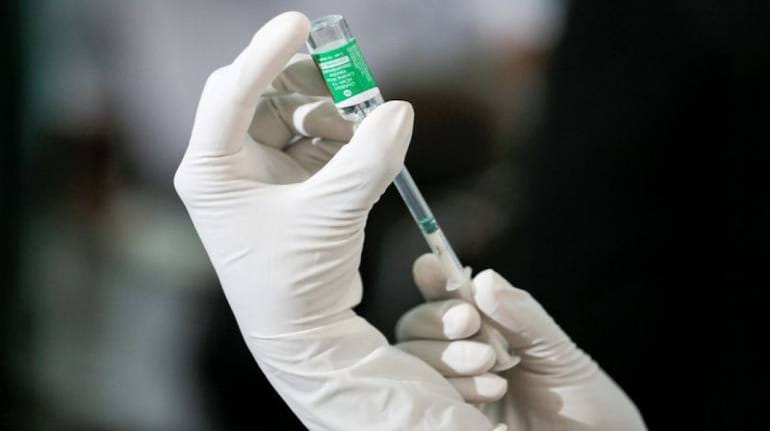



More than 60.73 lakh vaccine doses were administered in India on June 24, the Union Health Ministry's latest provisional report suggested. With that, the cumulative number of COVID-19 vaccine doses administered in the country crossed 30.79 crore.
On the 160th day of the vaccination drive on June 24, 52.89 lakh beneficiaries received their first shot and 7.84 lakh people were given their second dose.
The government has revised the gap between the two doses for the Oxford-AstraZeneca's Covishield, being manufactured by the Serum Institute of India, to 12-16 weeks. However, the interval for the second dose of Bharat Biotech's Covaxin remains unchanged.
Follow our LIVE blog for the latest updates of the novel coronavirus pandemic
Prime Minister Narendra Modi launched the nationwide vaccination drive on January 16, with healthcare workers at the frontline of India's COVID-19 battle getting their first jabs. The country began the second phase of the vaccination drive from March 1 in which everyone above 60 years of age and those over 45 years with comorbidities could start getting the vaccine.
From April 1, vaccination was opened for everyone above the age of 45 with or without comorbidities.
India rolled out the third phase of its COVID-19 vaccination drive for those in the 18-44 age group on May 1.
The central government has 'liberalised' the vaccination drive to allow states, private hospitals, and industrial establishments to procure the doses directly from manufacturers. However, later it announced to provide free COVID-19 vaccines to everyone above the age of 18 years from June 21. The new COVID-19 vaccination policy is a significant shift from the government's 'liberalised and accelerated' policy, announced earlier.
Registration on CoWIN platform for the third phase began on April 28 and is mandatory for the 18-44 age group.
Here are key developments related to the COVID-19 vaccination process:
- Allocation of COVID-19 vaccines to a state is done based on its population, caseload, utilisation efficiency, and wastage factors, the Union Health Ministry said on June 24 and dismissed media reports alleging non-transparent distribution of the jabs. The ministry said the allegations of non-transparent distribution of vaccines among states are "completely without any basis, and not fully informed".
- Twenty-five percent of the national capital's youth population has received at least one dose of COVID-19 vaccine, Aam Aadmi Party MLA Atishi said on the day.
- The Jammu and Kashmir administration has sought 20 lakh more doses of COVID-19 vaccine from the Centre before July 10, officials said on the day. This demand was raised by J-K Chief Secretary Arun Kumar Mehta at a high-level meeting chaired by Union Cabinet Secretary Rajiv Gauba to review the public health response to COVID-19.
- With the state government considering opening higher educational institutions, Karnataka Deputy Chief Minister C N Ashwath Narayan said on the day that all college students above 18 years, their teaching staff and non-teaching staff will be considered as apriority group to administer COVID vaccine.
- Police registered a sixth First Information Report (FIR) on the day in connection with an illegal vaccination camp racket at Bhoiwada in Central Mumbai, an official said. The racket came to light when the members of a housing complex in suburban Kandivali suspected that something was wrong with the COVID-19 inoculation camp organized in May at their society by some persons who claimed to represent a reputed private hospital.
- More than 13,000 prison inmates in Maharashtra have so far been vaccinated against coronavirus and the number of active COVID-19 cases among them has reduced significantly, the state government told the Bombay High Court on the day.
- The Delhi government will conduct a vaccination drive for homeless people at the Yamuna Pusta area near Nigam Bodh Ghat from June 25. "We are launching the drive to vaccinate homeless people at a camp at Yamuna Pusta. The drive will be expanded across the city gradually," an official said.
Here's the vaccination count for some states:
| States | Total Beneficiaries |
| Andhra Pradesh | 1,43,51,320 |
| Arunachal Pradesh | 5,29,147 |
| Assam | 65,13,109 |
| Bihar | 1,52,26,300 |
| Chandigarh | 4,80,663 |
| Chhattisgarh | 81,43,012 |
| Delhi | 69,55,094 |
| Goa | 8,17,453 |
| Gujarat | 2,39,18,802 |
| Haryana | 81,40,496 |
| Himachal Pradesh | 32,19,012 |
| Jharkhand | 62,40,166 |
| Karnataka | 2,08,74,135 |
| Kerala | 1,30,32,265 |
| Madhya Pradesh | 1,87,03,770 |
| Maharashtra | 2,97,23,637 |
| Odisha | 1,10,32,685 |
| Punjab | 66,64,272 |
| Rajasthan | 2,26,79,293 |
| Tamil Nadu | 1,39,88,481 |
| Telangana | 98,30,287 |
| Uttar Pradesh | 2,89,22,605 |
| Uttarakhand | 40,23,883 |
| West Bengal | 2,03,23,672 |
Click here for Moneycontrol’s full coverage of the coronavirus pandemic
Discover the latest Business News, Sensex, and Nifty updates. Obtain Personal Finance insights, tax queries, and expert opinions on Moneycontrol or download the Moneycontrol App to stay updated!
Find the best of Al News in one place, specially curated for you every weekend.
Stay on top of the latest tech trends and biggest startup news.